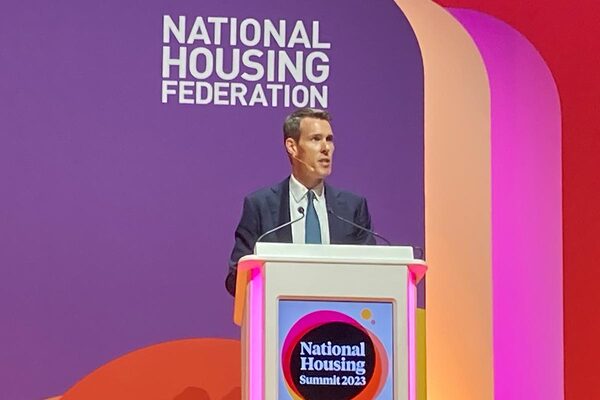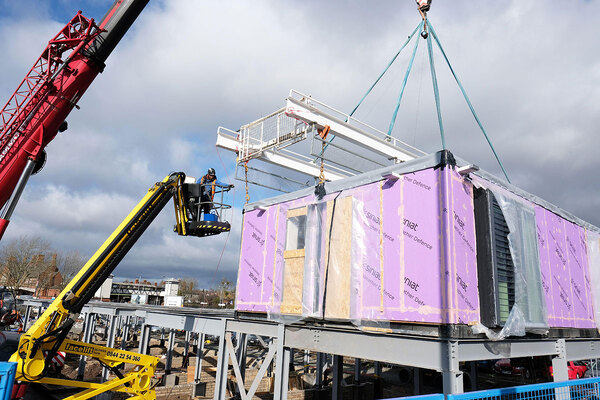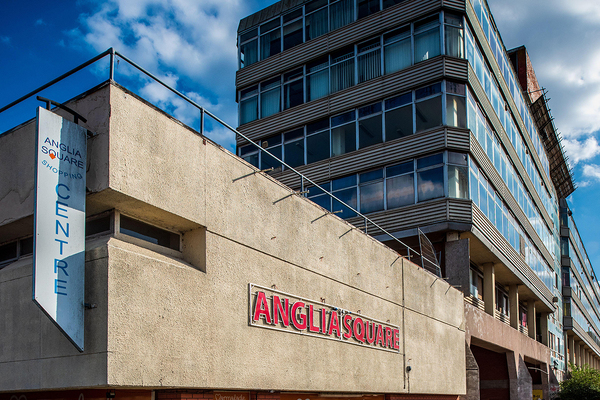You are viewing 1 of your 1 free articles
The Week in Housing: did the housing target ever exist?
The Week in Housing is our weekly newsletter, rounding up the most important headlines for housing professionals. Sign up below to get it direct to your inbox every Friday

Good afternoon.
For those in the sector who thought the housing crisis might be high on the agenda as the UK heads into an election year, there was little to come out of this week’s Conservative Party Conference to suggest it is an issue the Tories plan to campaign on.
More air time was given to discussing whether the Labour Party will tax meat or if science had become too woke.
Maybe having an annual housebuilding target was always too woke for a government that has made a habit of making things up and railing against them recently.
In this instance, it appears it is easier to just deny the target ever existed in the first place.
That was the claim made by housing and planning minister Rachel Maclean in one fringe panel session during the conference. When asked why the party had “abolished” the target, Ms Maclean denied this was the case.
She added: “We do still have housing targets. This is a very live debate… we never actually had a housing target in the way that people think we did. We had a housing need number.”
It was clear for many people in the party that housing is an important issue that needs to be addressed. But as Vicky Spratt, housing correspondent at The i, said: “Whenever I do these panels, there’s always agreement and then I don’t see any of it reflected in the manifestos.
“So we know what to do but the question is, ‘Is anyone going to do it?’”
It would be nice to think that the Labour Party will show some willingness at its conference this weekend but I wouldn’t hold your breath. Inside Housing reported last week how the party had rolled back on last year’s commitment to restoring social housing as the second-biggest tenure to a “long-term aspiration”.
It’s hard to fathom where this lack of political will comes from as the benefits to building social housing are clear.
A new report led by University College London (UCL) this week found that building 90,000 social and affordable homes a year could save the UK government £1.5bn a year in homelessness costs.
This is because savings would be found in housing and other benefits; the health, social, homeless and criminal justice services; unemployment; and children’s lost education.
The £1.5bn annual figure is an underestimate, the report said, as it does not include all the costs in these sectors or wider impacts on economic growth, productivity and life chances.
In an attempt to ease the capital’s temporary accommodation shortage, London’s biggest housing associations have drawn up plans to become providers for councils.
The initiative, nicknamed Project 123, was set up in August 2023 following figures which showed that one in 50 Londoners are now homeless, including one in 23 children.
Elsewhere this week, the government opened an important consultation on a part of Awaab’s Law, which will require landlords to provide tenants with information about their rights and complaint processes.
The law is the result of an amendment to the Social Housing (Regulation) Act 2023, following a campaign by Manchester Evening News and Shelter.
The campaign came after an inquest found that Awaab Ishak had died from prolonged exposure to mould in a Rochdale Boroughwide Housing flat in December 2020.
His family had been complaining about the state of the property for years, and it is an issue that continues to keep the Housing Ombudsman busy.
A2Dominion revealed this week that it has reviewed thousands of damp and mould cases after the ombudsman found it had failed two vulnerable residents.
In another ruling, Peabody was ordered to pay out around £8,300 after a leak left the children of one young family “caught in downpours” if it rained while they were in the bath.
As landlords look to invest more in their existing stock, a meeting of the London Assembly’s Fire, Resilience and Emergency Planning Committee reported that more than a quarter of London’s high-rise residential buildings with dangerous cladding are yet to have remediation work completed, more than six years after the Grenfell Tower fire.
Of the 200 buildings over 18 metres tall in London that are yet to have the work done, 58 are social housing towers.
The week came to an end with some better news for the sector as it was revealed that the estimated £750m Social Housing Pension Scheme (SHPS) deficit is on track to be cleared in fewer than five years.
Pensions advisor LCP told Inside Housing that the scheme’s funding position was on an “all else equal” basis, meaning that the plan to clear the SHPS deficit is ahead of where it expected to be.
Have a great weekend.
Stephen Delahunty, deputy news editor
Say hello: stephen.delahunty@insidehousing.co.uk
Editor’s picks: five stories you may have missed
Finance boss at Peabody to step down after five years
Losses shrink at for-profit after record completions and strong sales
South of England landlords seal tie-up to form 50,000-home group
London council to adopt 50% affordable housing target for new schemes
Major investor and three housing associations sign shared ownership deals worth £62m
Sign up for our Week in Housing newsletter
Already have an account? Click here to manage your newsletters











